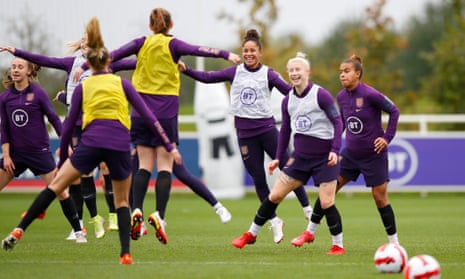The director of sport at the BBC has called for new rules on TV’s “crown jewels” following criticism directed at the broadcaster during the Olympic Games this summer.
Barbara Slater told MPs at the the digital, culture, media and sport committee that the “listed events: rules set by government should be extended to include the right to stream events online, and to include women’s sport among the named events.
“The listed event legislation is so critical, not just for the BBC but for public service broadcasters,” Slater said. “There is the ability of the BBC to amplify events. [But] this was a regime that was introduced in the 1990s, there hasn’t been any evolution in terms of digital and on-demand access. On demand is a modernisation that should happen. I think the other interesting thing is the prospect of women’s events being listed.”
Current listed events are broken down into categories, with the highest importance A group including the men’s football World Cup, Wimbledon and the Grand National as well as the Olympics. This category must be shown on free-to-air TV. In 2019 government announced a consultation into adding more women’s events, including the women’s football World Cup, which reached 28m viewers on the BBC in 2019.
The BBC showed 500 hours of coverage of the summer Olympics in Tokyo but received widespread criticism for not offering a full range of on-demand coverage online. This was a result of European rights being sold by the International Olympic Committee to Discovery and the BBC subsequently buying a limited package of rights back from the commercial broadcaster.
“It is a concern when rights are sold on a pan-territory basis because it means the BBC cannot bid individually. We are in discussion with the IOC over how they might do future tenders,” Slater said.
“I believe the BBC still brings so much … and some governing bodies recognise that. I think if you were to speak to Fifa about the women’s World Cup and the trajectory of the women’s game, they would say it was a great value deal for the BBC and for Fifa.”
Simon Morton, the chief operating officer of UK Sport, told the committee that the criteria for funding sports’ governing bodies is also set to be amended. Considerations are to be extended beyond simply the number of medals won at Olympic and international level, to include considerations of diversity and representation, among other measures.
“[The medal count will always be important, we are unashamedly a high-performance agency,” Morton said. “We have stated ambitions to remain in the upper echelons of the medal table and that means top five. But we do want to now measure success by other factors too. Do we have a diverse team? Does it reflect British society? How many sports are we winning medals in? These are some of the new measures we actually want to bring in.”
